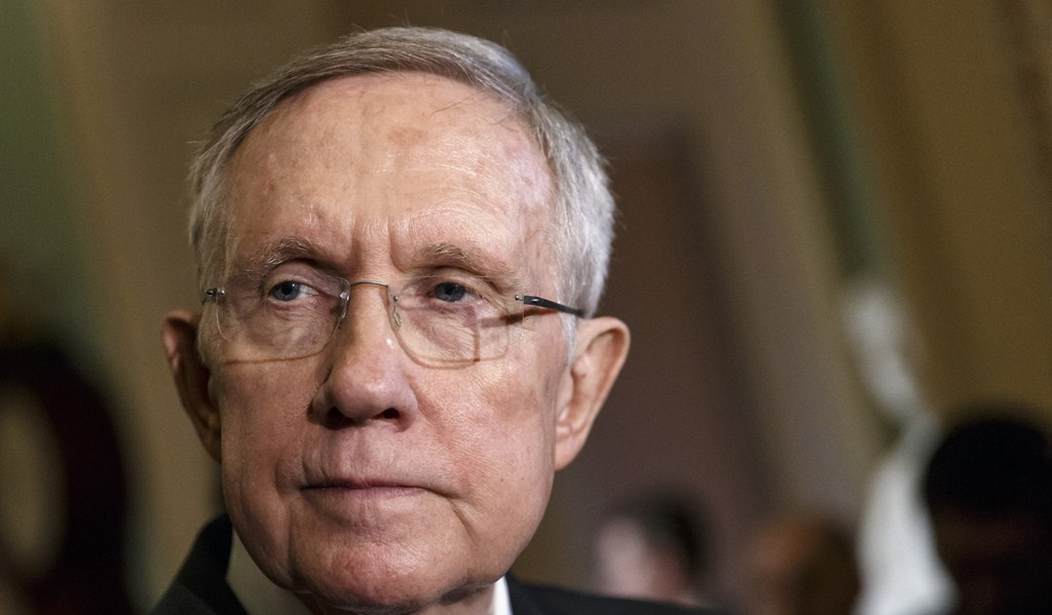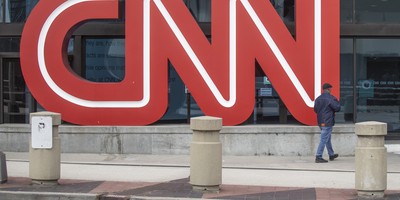It's no longer news when Majority Leader Harry Reid takes to the floor of the Senate to denounce the Koch brothers. But most Americans probably don't know that Reid and many of his Democratic colleagues now want to amend the U.S. Constitution in far-reaching ways to put an end to the conservative billionaires' political influence.
"The shadowy Koch brothers are attempting ... a hostile takeover of American democracy," Reid charged recently. "No one should be able to pump unlimited funds into a political campaign."
Reid urged his fellow lawmakers to support a proposed constitutional amendment, written by Democratic Sen. Tom Udall and co-sponsored by 40 of the Senate's 55 Democrats, that would give Congress the right to regulate all political contributions and all spending of any kind in all federal elections. (It would also give states the power to do the same in state elections.) The Supreme Court has held such far-reaching restrictions to be unconstitutional, which is why Reid wants to take the extreme step of changing the nation's founding document.
"Amending our Constitution is not something we take lightly," Reid said. "But the flood of special interest money into our American democracy is one of the greatest threats our system of government has ever faced."
The Udall amendment is brief. This is the heart of it:
"Congress shall have power to regulate the raising and spending of money and in-kind equivalents with respect to federal elections, including setting limits on (1) the amount of contributions to candidates for nomination for election to, or for election to, federal office, and (2) the amount of funds that may be spent by, in support of, or in opposition to such candidates."
Recommended
The amendment would grant incredible power to Congress: the authority to regulate every dollar raised and every dollar spent by every campaign and every outside group in every federal race in America. It would do the same for non-monetary, or "in-kind" contributions -- that is, when a person or organization contributes goods or services to a campaign. If Reid had his way, the U.S. Constitution would include the phrase "in-kind equivalents."
The Udall amendment is not some sort of eccentric crusade. It is the latest in a long line of efforts to limit campaign contributions and spending. And liberals have been particularly angry recently after the results of the McCutcheon and Citizens United cases.
But the Udall amendment is also part of a Democratic 2014 midterm electoral strategy that focuses on the Kochs as stand-in villains representing all of America's economic ills.
Building on the Occupy Wall Street movement and the successful portrayal of Mitt Romney as a plutocrat in the 2012 presidential election, wrote Washington Post liberal blogger Greg Sargent recently, Democratic strategists now believe "struggling swing voters are more open to the argument that the influence of big money in politics is one of the key reasons (along with other long-running trends) for rising inequality and a key cause of why the economy is rigged against them and for the wealthy ... "
It seems a long shot, but Democrats are facing a pretty tough environment this year. Maybe it's the best they have.
Still, proposing to amend the Constitution is a serious thing. Yes, it has been done for frivolous purposes in the past: In 1989, George H.W. Bush supported a proposed amendment to ban flag burning. But now, Reid, Charles Schumer and other top Democrats pledge that the Udall amendment will be debated in the full Senate and receive a vote -- and perhaps several votes -- this year. They are serious.
After Reid's announcement of support, Senate Minority Leader Mitch McConnell, a longtime veteran of the campaign finance wars, expressed outrage, calling the amendment "an all-out assault on the right to free speech" and "the ultimate act of radicalism."
Privately, some Hill Republicans see the move as a Democratic effort to bait GOP leaders into defending the Kochs. Which would of course be followed by more Democratic denunciations of the Kochs.
As far as the amendment itself is concerned, there's not a chance in the world Democrats will succeed. Amending the Constitution requires a two-thirds vote in both House and Senate, and then approval by the legislatures of three-fourths of the states. It won't happen.
But the very fact that Democrats plan to seriously consider a constitutional amendment born of an election-year strategy to silence a pair of big conservative contributors suggests how far Reid and his colleagues would go to crack down on political adversaries. Is any temporary partisan advantage worth such a radical step?

























Join the conversation as a VIP Member